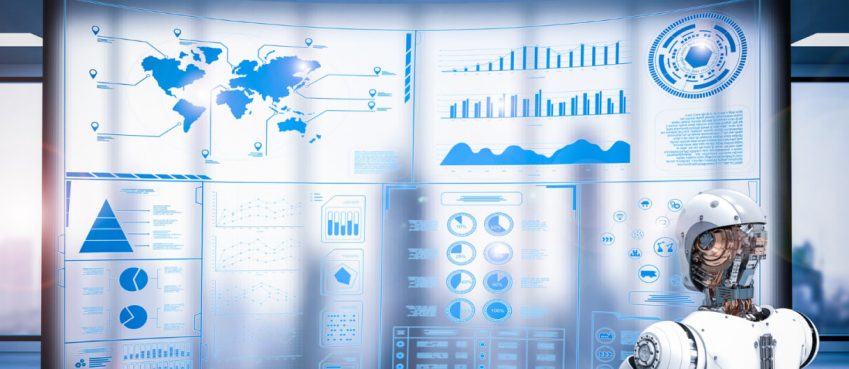
Artificial Intelligence makes network evolution much more efficient than it was in the past.
Between 2015 and 2019, internet connectivity has grown at a rate of around 2%. It has increased by 8% over the past two years, which is an incredible increase in connectivity. The user’s expectations have changed over the past two years due to changes in their professional and personal lives. The transition from offline to online work has seen a rise in connectivity. Gaming and entertainment are two more examples of how users have raised their expectations. All Communication Service Providers have made customer experience a priority. Modern networks are getting more complex to meet these requirements. Today, Service Disruption is being replaced by Experience Disruption.
What to expect?
Many changes are expected from the new experience paradigm. The key factors would include measuring experience, troubleshooting networks with End-to-End Insights, and monitoring them. Machine Reasoning and Machine Learning will play an important role in Network Evolution. The Networks will become smarter and more responsive to consumers’ needs.
Artificial Intelligence will play a major role in these areas
Awareness — Measurement, and Prediction of Experience
Reasoning — Root Cause Analysis in Networks
Interaction between Interactive and Natural Language
Mature Intelligence — Mature intelligence that would evolve over time and make the right decisions
Autonomous — The ability to adapt to the needs and wants of the consumer
This is the ARIMA of networks.
Awareness — Artificial Intelligence would enable networks to be fully aware of the types and nature of connected devices as well as their bandwidth requirements. Understanding the trends will enable networks of Wi-Fi connections in offices and homes to be able to measure and personalize each user’s experience. While latency may be a problem for some IoT devices, bandwidth is not an issue for others. These demands will be able to be spotted by AI, which will aid networks. AI will optimize the network to achieve a smoother user experience, as both home and office networks have multiple devices that work together.
Also read: DND Character Sheet: What It Is, How To Set Up, Backgrounds & Gameplay TerminologyReasoning — Network engineers always have a variety of Network Monitoring tools to help them feel confident and in control over their networks. It is not common for us to complain about network issues and get it resolved quickly. Artificial intelligence-powered networks could greatly reduce the time and effort required to resolve the issue. It is possible to escalate the problem and perform any necessary troubleshooting in just a few clicks. As soon as the user encounters an issue with the network, the problem will automatically be recorded and a diagnosis will be made. This is done without the need for human intervention. The root cause of the problem will be automatically identified, and the resolution process will be expedited.
Interactive — Natural Language Engines can bring about great changes. NLP gives Networks the ability to communicate with people in a new way. Products like Alexa are helping bridge the communication gap between IoT devices, humans, and IoT devices using Voice Interface. The network can be used by both the Network Administrator and Home Users in a similar manner. Networks will be able to recognize human indentions and adapt accordingly.
Mature — AI allows for the transfer of intelligence from Network Experts to Routers and Switches as well as other elements that are part of the network. Machine Learning models work in concert with one another and have customer experience as feedback systems. They continuously learn and optimize the experience to make it better.
Autonomous — The integration of artificial intelligence into networks allows for a shift from reactive to proactive methods. The automation of the process of diagnosing, diagnosing, and prescribing solutions reduces the need for human intervention. This proactive approach will ensure maximum network-up time as the problem is quickly identified and solved. This will allow the IT department to concentrate on its core goals.
Also read: What Is Forex Trade? 5 Untold Forex Trading Benefits + Expert Tips For Higher Forex ProfitHow AI can improve our lives
Technology changes over time. It makes technology better than it was in the past. New vulnerabilities also emerge with these changes and enhancements. There is nothing more frustrating than being unable to connect to the internet or experiencing slow internet, despite having access. The safety of information uploaded may also be at risk. A sudden loss of network connectivity in the middle of an urgent task can make a user feel like a world is on fire. No industry is left behind by AI. This is true even for the network industry.
These are just a few of the transformations that started with artificial intelligence being integrated into networks.
- Increased Network Uptimes
- Predictive Maintenance
- Rapid issue resolution
- Anomaly Detection
- Network Security
We have seen a significant shift in all major industries towards the digital space since the pandemic. This has made it more important to have a reliable and consistent network all over the world.
Technology is changing at an alarming rate. There will be more network transformations. As computing power grows rapidly, networks will evolve at a rate that is unimaginable. The new technologies are likely to make networks and devices more human-like.
Top 10 News
-
01
Top 10 Deep Learning Multimodal Models & Their Uses
Tuesday August 12, 2025
-
02
10 Google AI Mode Facts That Every SEOs Should Know (And Wha...
Friday July 4, 2025
-
03
Top 10 visionOS 26 Features & Announcement (With Video)
Thursday June 12, 2025
-
04
Top 10 Veo 3 AI Video Generators in 2025 (Compared & Te...
Tuesday June 10, 2025
-
05
Top 10 AI GPUs That Can Increase Work Productivity By 30% (W...
Wednesday May 28, 2025
-
06
[10 BEST] AI Influencer Generator Apps Trending Right Now
Monday March 17, 2025
-
07
The 10 Best Companies Providing Electric Fencing For Busines...
Tuesday March 11, 2025
-
08
Top 10 Social Security Fairness Act Benefits In 2025
Wednesday March 5, 2025
-
09
Top 10 AI Infrastructure Companies In The World
Tuesday February 11, 2025
-
10
What Are Top 10 Blood Thinners To Minimize Heart Disease?
Wednesday January 22, 2025







